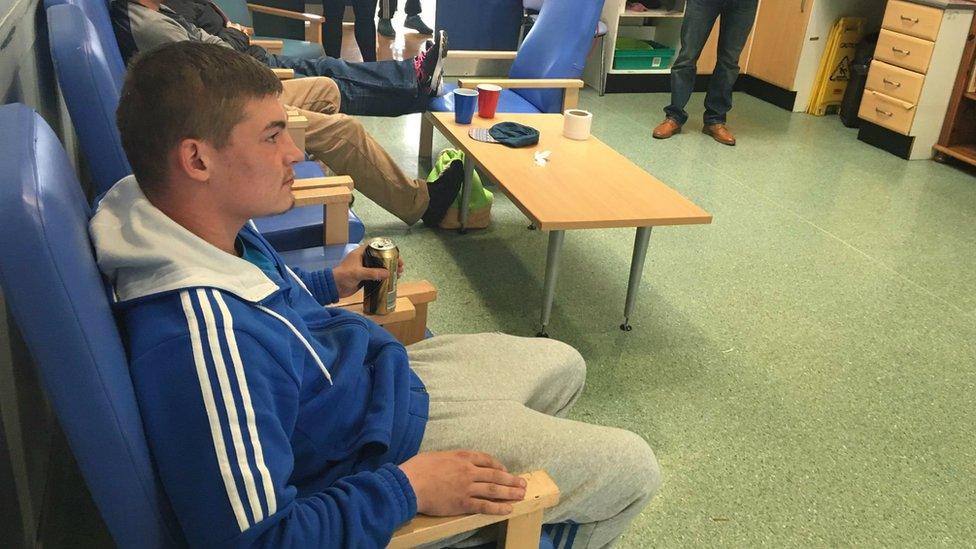Homelessness in NI: Life on and beyond the streets
- Published
Seamus talks about the trauma faced by the homeless
Sleeping bags in high street doorways is the definitive image of homelessness for many people.
But, is this a fair reflection of the problem?
There are about 15,000 homeless people and individuals in Northern Ireland, including the elderly, according to the Housing Executive.
The Housing Executive also said that rarely more than six people sleep on the streets on any night.
Several homeless charities have said that some people are choosing this option and not seeking support or shelter.
Others, like Stuart, say it's not that simple.
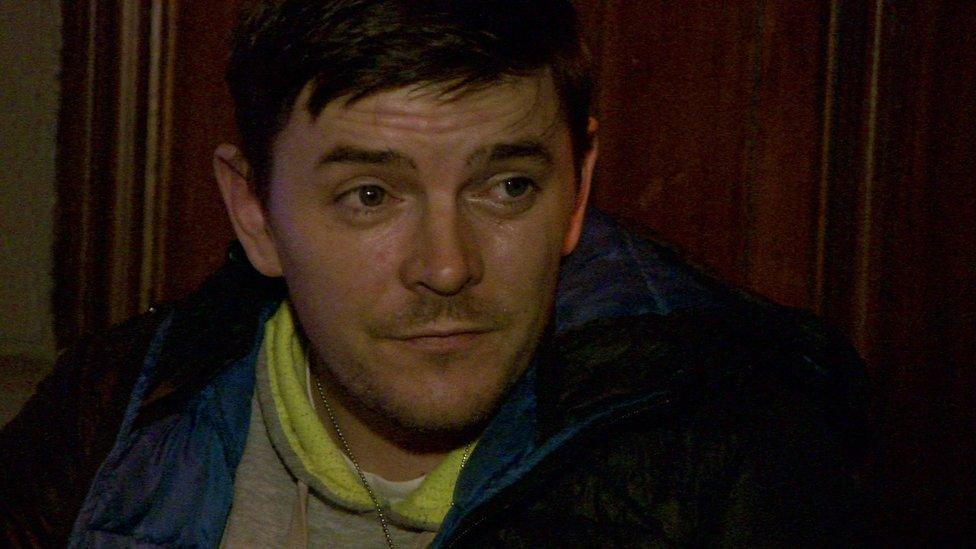
Stuart, a homelessman, said rough sleeping is a "vicious circle"
I find him and his friend, Mark, sitting in sleeping bags in Belfast city centre.
They are beside a CCTV camera for safety.
Stuart describes rough sleeping as a "vicious circle".
He said they were told there was no room at the hostels they tried that night, so they're asking for money to pay for a B&B.
However, he said many homeless people on the street are begging for money to spend on drugs.
Stuart and Mark both said they understand why people might be reluctant to give them cash because no one can be certain where it is being spent.
Just over a mile away, I meet a former rough sleeper called Michelle.
We are at a drop-in centre where hundreds of homeless people each week have access to free meals, tea, coffee and the internet.
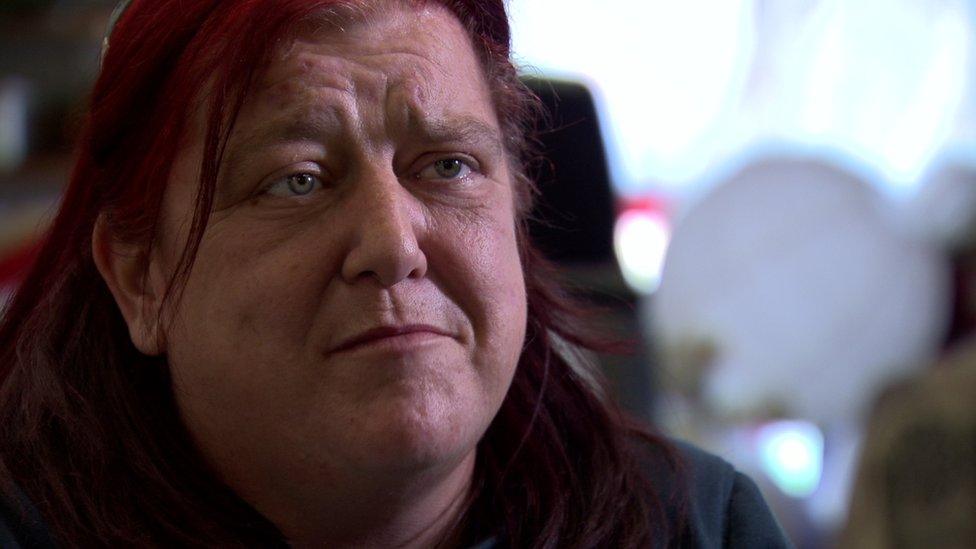
Michelle, a former homeless woman, said some people can make £1,000 on the streets
She said public generosity is fuelling drug dealers in Belfast.
In less than five hours, she could make £170 and be given new clothes with receipts for refunds.
In a week, she said, some street beggars can make more than £1,000 - and this is not being spent on food and water.
"It's not going back into the system or going to charities. It's going straight to your drug dealer," she added.
A short distance away, I meet several other homeless people.
There are no sleeping bags or people asking for change. Instead, there is a group of young men playing football.
They are taking the session seriously. Some recently represented Northern Ireland at the Homeless World Cup in Scotland.
All of these men are, or at some stage have been, homeless.
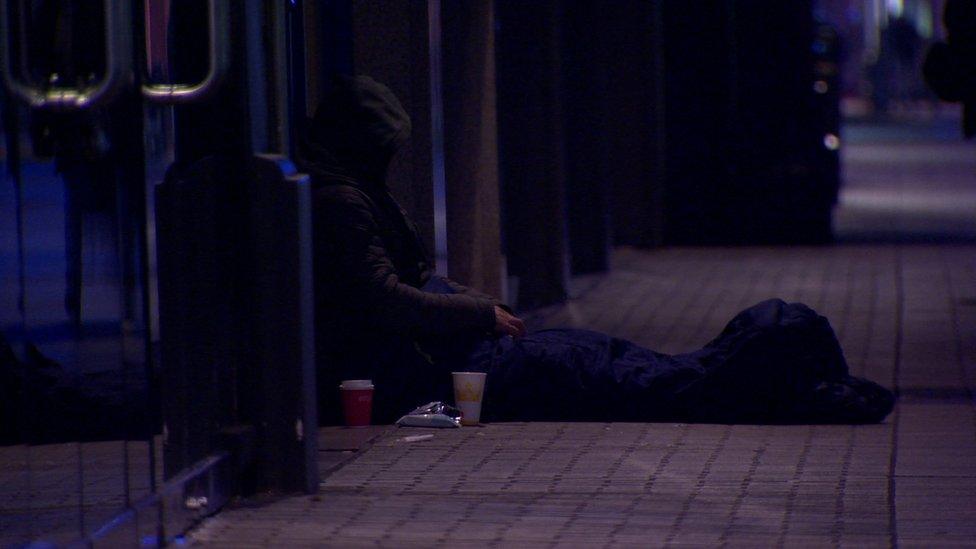
There are around 15,000 homeless families and individuals in NI, according to the Housing Executive
Some are refugees from Africa.
One of the players, Colum, has recently secured his own flat after years of living in hostels.
He first became homeless when his father was sent to prison and then, after he passed away, Colum became homeless for a second time.
He is one of the standout players at this session. So is his teammate, Gerald, who said this initiative has transformed his life.
After becoming homeless because of behavioural problems and substance abuse, he went to live in a hostel.
He is back in contact with his family and said the football initiative has given him a fresh focus.
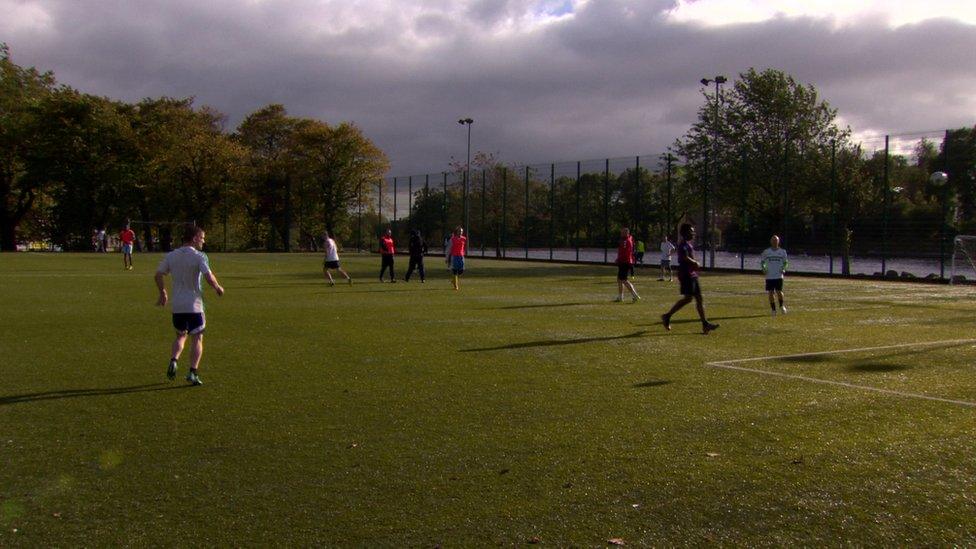
A football initiative for homeless people has been credited with giving those involved a fresh focus
But, he added, there is a stigma that comes with being homeless.
"People look at you in the street and bars won't let you in… it's disgusting and it's discriminating. We're just normal people. We're trying to change our lives."
Substance abuse is a common problem among many homeless people. But there's another serious concern - mental health.
Whether it is the few regulars on the streets, or the many staying in some form of accommodation, numerous homeless people suffer from serious mental health problems.
Some people, like Seamus, said this can lead to tragedy.
He and some of his homeless friends have regularly slept rough. He said homeless street culture is dominated by fights, isolation and a sense of worthlessness.
"You feel depressed, you feel lonely and you do feel suicidal. I made a lot of good friends on the street, we're like one big family, and it's heartbreaking to see a lot of people losing their lives."
Seamus uses Belfast's Welcome Centre,, external who provide him with a range of services, including counselling.
The reasons people become homeless can be as complex as the issue itself.
There is not a single image or voice that can define homelessness. The streets form just part of a much broader picture.
From football pitches, drop-in centres and hostels, the daily struggle to find a place called home continues for thousands of people in Northern Ireland.
- Published10 October 2016
